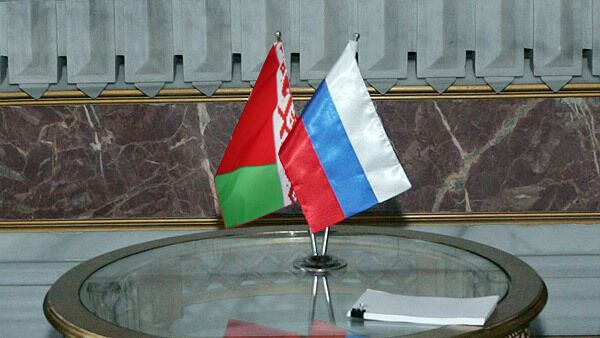Belarus is taking Russia to court. It may sound outrageous, but this is actually how civilized nations behave. Perhaps these sister Slav nations can elevate their discourse and leave behind the family squabbles.
The lawsuit was brought on by the latest in a series of energy disputes. On January 1, Russia introduced new export duties on refined petroleum products and raw materials to Belarus. Minsk opposes the new duties and believes the decision violates the 1992 and 1995 bilateral free trade agreements. The Economic Court of the Commonwealth of Independent States - which, incidentally, is located in Minsk - should be able to put the matter to rest.
There are two parties and two sides to the case. The legal and economic intricacies will be unraveled by judges. After all, they have to do something, right? Although the court has been in existence since 1992, this writer has found no information on any cases it has heard.
The news section of its website contains nothing but information on official visits to former Soviet republics and attendance at meetings held by the CIS's numerous intergovernmental agencies. Belarus's lawsuit can be viewed as a useful precedent, which will breathe life into the court and justify its existence in the CIS.
There is also a political element in the conflict. Although this is a purely legal claim that was filed by the Ministry of Justice itself, one must remember that there is one man standing behind all the moves of any Belarusian government agencies - President Alexander Lukashenko. At first glance, the lawsuit filed with the CIS court looks like the Belarusian leader's latest hostile gesture toward Moscow.
There have been many such gestures recently. In May of last year, when the so-called "dairy war" ended, Lukashenko came down hard on the Russian government. "The presidents take decisions, while the Russian government thwarts them," he said. "Everything we agree upon at the highest level is blocked and left undone." President Dmitry Medvedev later reproached Lukashenko for his remark.
There were other demarches as well. The latest occurred last week, when Lukashenko pointedly traveled to Venezuela on the eve of Russian Prime Minister Vladimir Putin's visit to Belarus. While in Venezuela, Lukashenko signed an oil purchase agreement.
Lukashenko himself describes these zigzags as "diversifying exports and relationships." That would be reasonable enough on its own, but the fact is such an attitude turns the Russia-Belarus Union State into a flimsy paper edifice with a bureaucratic top and nothing else propping it up. Lukashenko, in fact, only seems to remember about the Union State when it is convenient for him - for example, when he does not want to pay import duties or wants a discount on gas. Then he starts to "diversify." He is even prepared to make overtures to Western countries, whose political class calls him "the last dictator in Europe."
The fact that Lukashenko is not offended by this is his own personal business and an internal matter for Belarus.
But "lapses of memory" are inadmissible in a partnership, especially if unification is the partners' stated goal.
That is why, paradoxically, the lawsuit filed by the Belarusian Ministry of Justice with the CIS Economic Court may have a sobering and salutary effect on the union of the two states. That would be the civilized outcome. It is perfectly acceptable behavior in non-virtual intergovernmental unions, like the European Union. This kind of union is not a merger or an acquisition that renders the partners indistinguishable. Individual members of such unions retain their sovereignty and may have disputes over economic and trade issues.
However, such disputes are best resolved in special courts, not vigilante-style or in the backrooms of official negotiations. This is the first time the Belarusian government has taken this high ground throughout the many years of its uncertain alliance with Russia. This step could make the relations, if not better, then at least more clearly defined.
The opinions expressed in this article are the author's and do not necessarily represent those of RIA Novosti.
MOSCOW. (RIA Novosti political commentator Nikolai Troitsky)

